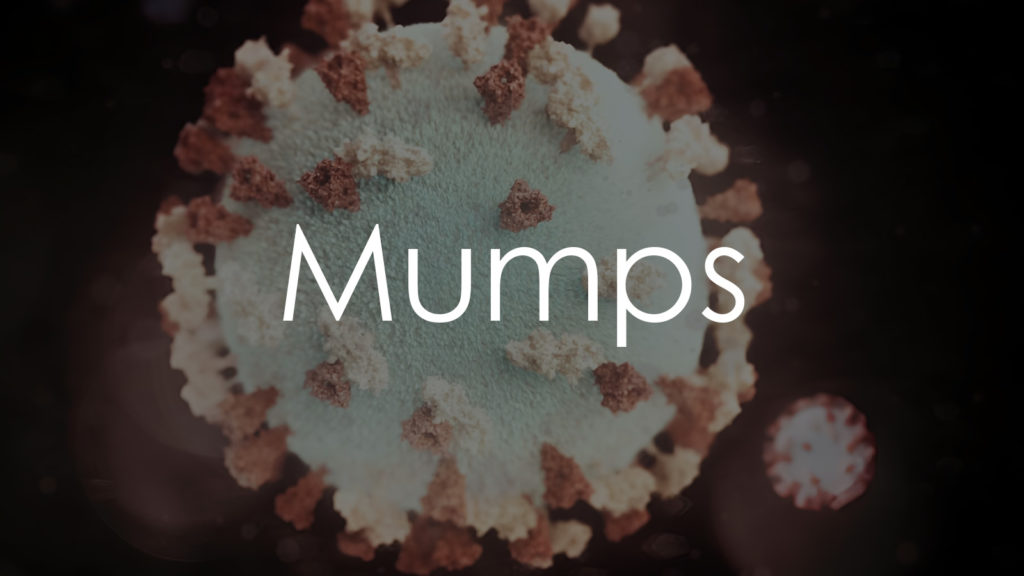Complications of mumps can arise, especially in individuals who are not vaccinated. These complications can range from mild to severe and can affect various organs and systems in the body. Understanding these complications is essential for early detection, prevention, and effective management.

Neurological Complications
Meningitis
Symptoms and Severity
Meningitis, an inflammation of the membranes covering the brain and spinal cord, is a serious complication of mumps. Symptoms include severe headache, stiff neck, sensitivity to light, and vomiting. While often mild, mumps-related meningitis can occasionally be severe and require hospitalization.
Treatment and Management
Treatment involves supportive care, including pain management, fluids, and close monitoring. Severe cases may require hospitalization and more intensive care.
Encephalitis
Symptoms and Severity
Encephalitis, inflammation of the brain, is a rare but life-threatening complication of mumps. Symptoms include high fever, severe headache, confusion, seizures, and loss of consciousness.
Treatment and Management
Immediate medical attention is crucial for encephalitis. Treatment includes antiviral medications, intravenous fluids, anti-inflammatory drugs, and, in severe cases, intensive care support.
Reproductive Complications
Orchitis
Testicular Swelling and Pain
Orchitis, inflammation of the testicles, occurs in about 30% of post-pubertal males with mumps. It causes testicular swelling, severe pain, tenderness, and fever.
Risk of Infertility
Orchitis can lead to testicular atrophy and, in rare cases, infertility. Prompt medical treatment and supportive care, including pain relief and scrotal support, are essential.
Oophoritis
Ovarian Inflammation
Oophoritis, inflammation of the ovaries, affects about 5% of post-pubertal females with mumps. Symptoms include lower abdominal pain, fever, and nausea.
Risk of Infertility
While less common, oophoritis can affect fertility. Management includes pain relief and monitoring for any complications.
Auditory Complications
Hearing Loss
Temporary Hearing Loss
Mumps can cause temporary hearing loss due to inflammation and swelling in the inner ear. This typically resolves on its own after the infection subsides.
Permanent Hearing Loss
Permanent hearing loss can occur if the auditory nerve is damaged. This complication is rare but can have a significant impact on quality of life. Early intervention and audiological evaluation are important for management.
Pancreatic Complications
Pancreatitis
Symptoms and Severity
Pancreatitis, inflammation of the pancreas, is a potential complication of mumps. Symptoms include severe abdominal pain, nausea, vomiting, and fever.
Treatment and Management
Treatment involves hospitalization, fasting to rest the pancreas, intravenous fluids, and pain management. Severe cases may require more intensive treatment and monitoring.
Thyroid Complications
Thyroiditis
Inflammation of the Thyroid Gland
Thyroiditis, inflammation of the thyroid gland, can occur with mumps. Symptoms include neck pain, swelling, fever, and changes in thyroid hormone levels.
Management
Management includes pain relief, anti-inflammatory medications, and monitoring thyroid function. Severe cases may require hormone replacement therapy if thyroid function is significantly affected.
Cardiovascular Complications
Myocarditis
Inflammation of the Heart Muscle
Myocarditis, inflammation of the heart muscle, is a rare but serious complication of mumps. Symptoms include chest pain, shortness of breath, fatigue, and arrhythmias.
Treatment and Management
Treatment involves hospitalization, anti-inflammatory medications, and supportive care. Severe cases may require more intensive cardiac care.
Joint Complications
Arthritis
Joint Inflammation
Arthritis, inflammation of the joints, can occur with mumps. Symptoms include joint pain, swelling, and stiffness, typically affecting larger joints like the knees and hips.
Treatment and Management
Treatment includes pain relief, anti-inflammatory medications, and physical therapy to maintain joint function and mobility.
Other Complications
Miscarriage
Risk During Pregnancy
Pregnant women, particularly in the first trimester, who contract mumps may be at higher risk for miscarriage. This underscores the importance of vaccination and preventive measures for pregnant women.
Management
Immediate medical attention and supportive care are essential for pregnant women who contract mumps to manage symptoms and reduce the risk of complications.
Secondary Bacterial Infections
Increased Susceptibility
Individuals with mumps may be more susceptible to secondary bacterial infections, such as bacterial meningitis or pneumonia, due to the weakened immune system.
Treatment
Treatment includes appropriate antibiotics, supportive care, and monitoring for signs of secondary infections.
Conclusion
Complications of mumps can be severe and affect various organs and systems in the body. Early recognition and prompt medical treatment are crucial for managing these complications effectively. Vaccination remains the most effective way to prevent mumps and its associated complications. By understanding the potential complications, individuals can take proactive steps to seek medical care and reduce the risk of severe outcomes.